Prof. Venu Kavarthapu is internationally recognised for his expertise on complex diabetic foot functional limb salvage. He is the head of the diabetic foot surgical service at London Bridge Hospital and also the orthopaedic lead of the King’s College Hospital Multi-disciplinary Diabetic Foot Unit, where he set up the functional limb salvage service in 2007. He introduced and pioneered the modern internal fixation techniques in complex diabetic foot deformity corrections. He has published extensively on diabetic foot surgery and authored several book chapters on this subject. He is invited to most key diabetic foot meetings internationally. He also established the ‘Multidisciplinary and Surgical Reconstruction of Charcot Foot Symposium’ and ‘King’s Charcot Foot Reconstruction Cadaver Workshop’ course in London. He is the current President of the International Association of Diabetic Foot Surgeons.
As the diabetes pandemic sweeps the world, in its wake, diabetic foot disease continues to cause disability and death. In addition, patients with comorbidities, including heart disease and chronic kidney disease, require a highly specialised level of capability and care rarely found in the independent sector. Professor Kavarthapu has recently established a dedicated expert multidisciplinary diabetic foot team at London Bridge Hospital and offers complex and comprehensive diabetic foot surgical treatment.
Leg amputation in diabetic patients carries a greater risk of mortality than most common cancers. And until recently, the outcomes associated with standard diabetic foot reconstruction weren’t much better than the outcomes associated with amputation. Techniques used in the past didn’t provide lasting support for healing bones. Metal structures broke down and screws would shift or disconnect. The devices used weren’t intended for diabetic feet – they were designed for use in trauma patients. This all changed with Professor Venu Kavarthapu. The first surgeon in the UK to fully reconstruct a major diabetic foot deformity using new techniques, leads the multidisciplinary diabetic foot team at King’s College Hospital NHS Foundation Trust and now London Bridge Hospital. Over his career, he has researched and campaigned for new techniques and devices that significantly improve the outcomes in patients offered amputation by their local clinicians.
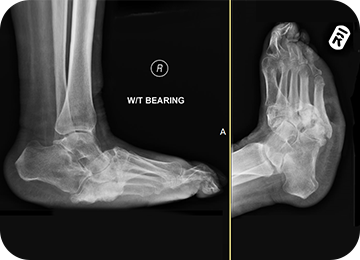
Professor Venu Kavarthapu leads a large multidisciplinary team that offers treatment for a range of diabetic foot conditions:
 Ulcer debridement
Ulcer debridement Soft tissue balancing procedures (correcting the shape of a flexible deformity)
Soft tissue balancing procedures (correcting the shape of a flexible deformity) Bone exostectomy (removal of prominent bone)
Bone exostectomy (removal of prominent bone) Minor amputations
Minor amputations Acute Charcot foot reconstruction
Acute Charcot foot reconstruction Chronic Charcot foot reconstruction
Chronic Charcot foot reconstruction Two-stage Charcot foot reconstruction for Infected Charcot foot
Two-stage Charcot foot reconstruction for Infected Charcot foot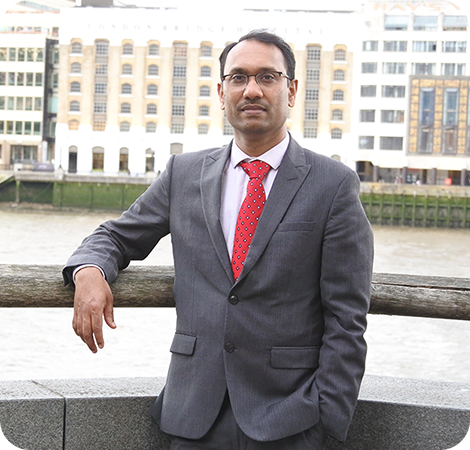

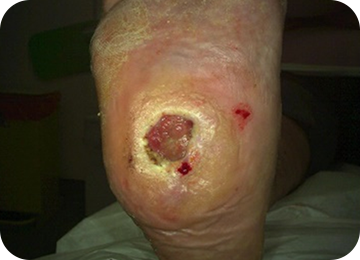
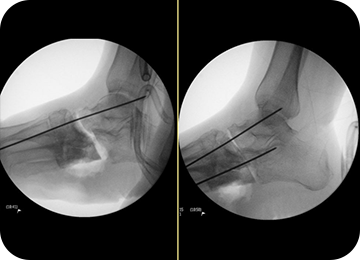
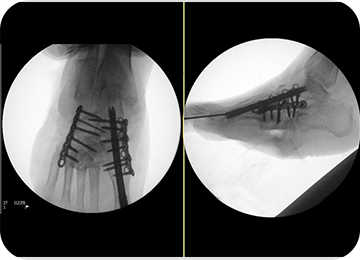
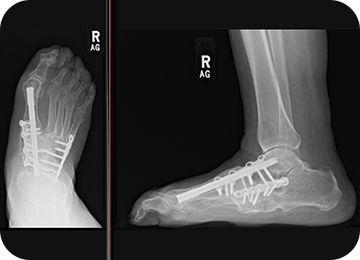
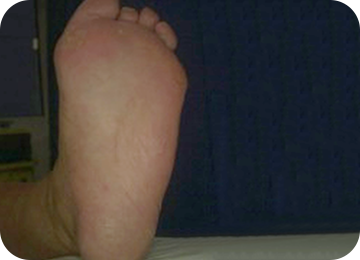
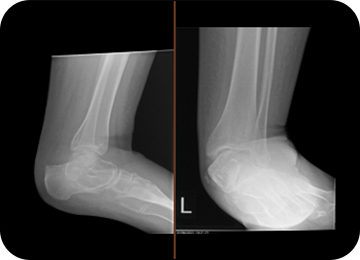
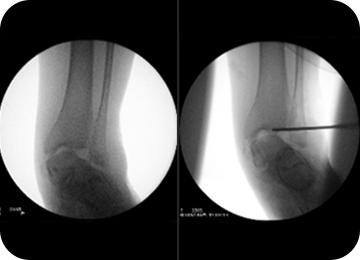
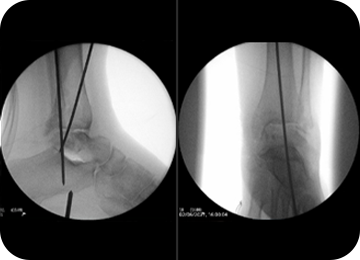
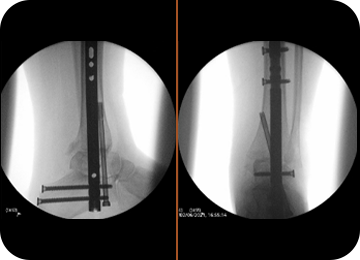
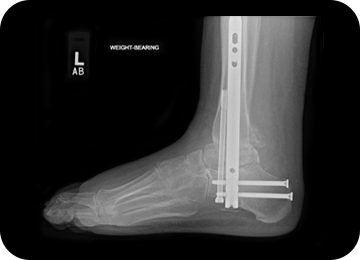
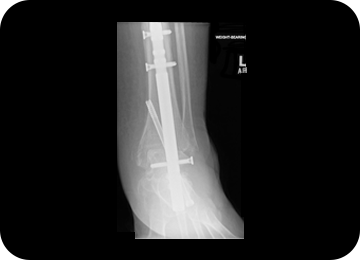
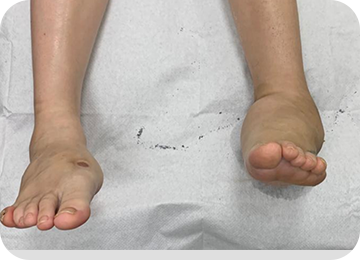
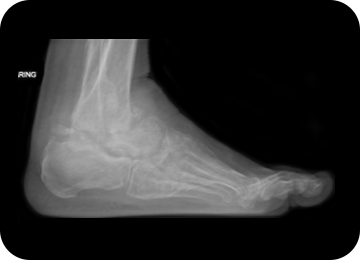
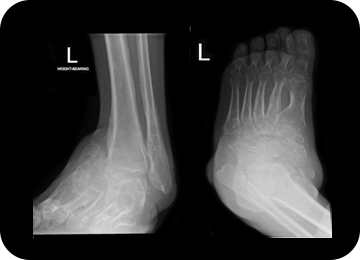
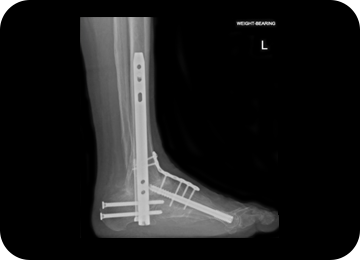
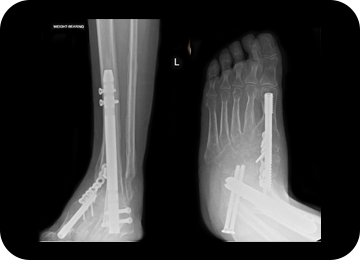
Before surgery, the patient will check into the hospital for pre-operative care. One of our specialist consultant diabetologists will monitor their heart, kidney and lungs, and ensure blood sugar levels are healthy. Our podiatrist will provide specialist care to any existing wounds and help manage any cast or brace care. We carry out comprehensive tests, including for foot circulation, and correct any abnormalities before reconstruction.
If damage is not too severe and there is no active infection, Professor Kavarthapu will undertake a full foot reconstruction as a one-stage procedure. He will correct the foot deformity and fix the bones in the new position using specialist metal structures inside the foot. This allows the bones to heal together in the corrected position. If there’s a greater level of damage or active infection in the foot, he will first perform a clean-up operation to remove infected tissue or disintegrated bone matter. The patient will need to heal for six to eight weeks after this initial surgery before a full foot reconstruction takes place.
Patients will remain in the hospital while they recover from surgery. They’ll be cared for by the multidisciplinary team lead by Professor Kavarthapu. During this time, the podiatrist will continue to provide specialist care and a resident orthotist will produce custom-made shoes to support longer-term rehabilitation. After one-stage reconstruction, we expect patients to stay with us for two to six weeks. If the patient has had a two-stage reconstruction, with initial clean-up surgery, we expect a longer period of recovery in hospital – up to three months in some cases.
We expect patients to fully recover from surgery, and in most cases, regain the ability to walk without support, within three to six months. London Bridge Hospital’s rehabilitation programmes can seamlessly bridge the gap between leaving hospital and returning home. The same multidisciplinary team will provide outpatient care. London Bridge Hospital offers partnership packages with either the Shangri-La at The Shard, Hilton London Tower Bridge or London Bridge Hotel.